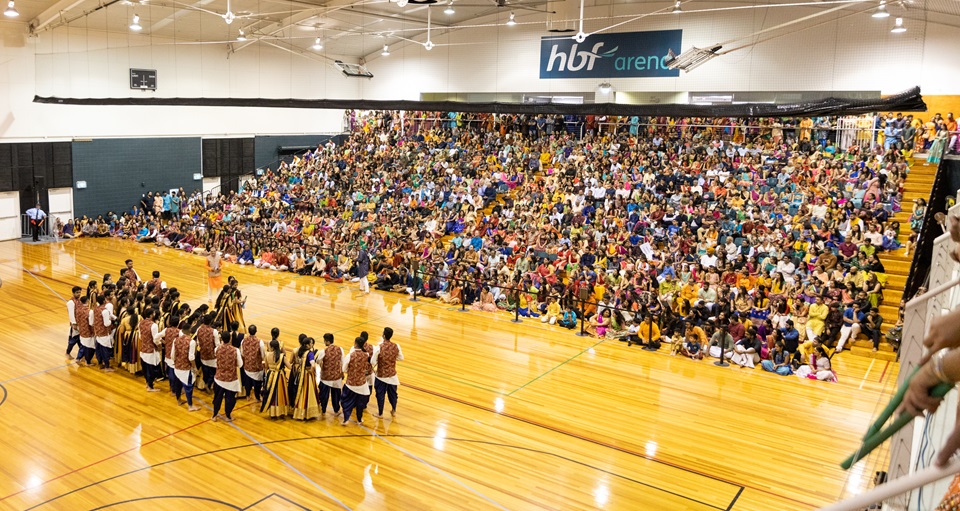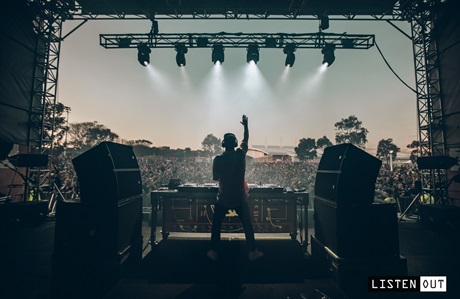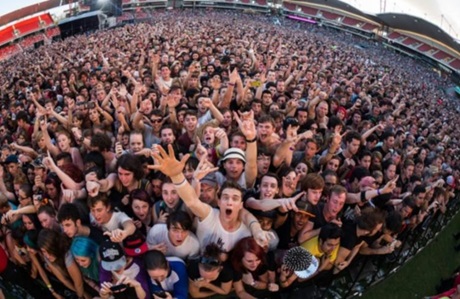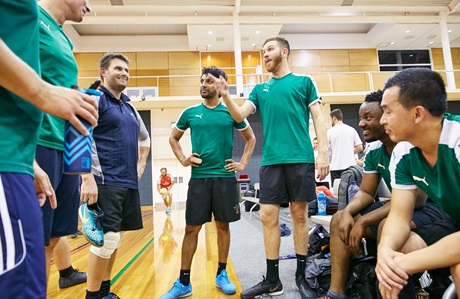Our top six tips for organising a community event in Perth
Reading time: 5 minutes

Events are a great opportunity for members of the local and wider community to come together to celebrate success, increase awareness, fundraise, collaborate, or share in a great experience.
There is a large amount of planning and preparation that goes in to ensuring a community event in Perth is a success and some key considerations to keep in mind to make sure things run smoothly and everybody has a great time.
To help you next time you are organising a community event in Perth, here are our top six tips:
1. Make sure you have a skilled and dedicated organising team
From the start ensure you have someone to lead the organising team who is passionate and committed to the events success. The organising team will be responsible for all aspects of the event, make sure this team is made up of people with a variety of skills who are dedicated to ensuring the event is successful.
Ensure each team member is given an even spread of the fun and less-fun tasks. For a lot of community events in Perth the organising team is made up of a group of volunteers so it is essential that they have a nice mix of tasks to help out with. Discuss everyone’s skills and what they are interested in helping out with, usually when someone is doing something they enjoy and are good at they are the most helpful!
Ensure each team member is clear on their role and responsibilities. Giving each group member a specific role and set responsibilities can avoid confusion, overlaps and ensure time is used effectively.
2. Allocate adequate time to brainstorming and planning
Get together with some coffee and snacks and throw around some ideas for your event. If your event is an annual occasion what can you do differently from last year to surprise and wow your guests, keeping them coming back year after year? Are there learnings from a previous event that can guarantee this event is even better than before? What about some creative ideas to entice people to come to your event, get more sponsors on board or a fun theme or activity to provide something extra for your guests?
Determine your event objectives. Is it to fundraise a certain amount of money? Celebrate a specific achievement? Have a particular number of people in attendance? Or to have a great time and enjoy the company of fellow community members? Get clear on your objectives from the start.
Establish a realistic budget for your event. Will you be relying on event sponsors? If yes, what sponsors will you approach and how will you approach them? Make a plan for how you will stick to the budget. Allocating a significant portion of your planning to determine the budget and where it will come from, as well as how it will be spent is crucial.
Next is determining the key specifics for your event such as your venue, event start and finish times as well as key timings during the event, target audience and target attendance figures, event theme, entertainment, catering and determining whether volunteers will be required to help out at the event.
After you have confirmed all of the event specifics delegate tasks to each team member and dates to complete actions by such as choosing and booking the venue, locking in the catering and entertainment, finalising attendance numbers, etc. Make sure you document all of your brainstorming, planning and which team members are responsible for which tasks.
3. Choose a suitable venue
Once you are clear on your event objectives you can then choose a venue most suitable for your event. Ensure the event has the facilities and extra features that you require. Will the venue provide support before, during and after your event? Get clear on what is included in the venue hire fee or if requesting additional items or assistance will result in extra fees, as they can add up!
Make sure the venue you are considering includes all off the basic requirements such as adequate parking, number of toilets, bins, lighting and power outlets. Ensure the venue is suitable for the theme and target audience for you event. Does the venue have adequate space for the event activities and people attending to move around and comfortably enjoy themselves?
Ensure the venue you choose is prompt in their communication and that their staff are knowledgeable, this will become more important as the date of your event gets closer where you will find yourself increasingly liaising with the venue to iron out the finer details.
4. Implement safety and risk management practises
Good safety and risk management planning is essential to keep workers, volunteers and guests attending your event safe and free from risk. Depending on the type of event will determine what risks are likely to occur and the level of detail for your risk management planning.
Outline what potential risks and hazards could occur before, during and after your event. Then assess and rank each risk in relation to one another. Is each risk likely or unlikely to occur? Determine strategies to mitigate each risk to prevent it from happening, as well as the process of action if the risk does occur.
Allocate each risk to a member of the organising team to be responsible for managing that risk. Ensure that someone is the point of contact before, during and after the event in case of a risk occurring.
5. Get the word out
Promoting your event effectively is essential to ensure you reach your target audience and target attendance for your event.
Brainstorm creative ways within your budget to get the word out that will help reach your target audience. Knowing your target audience demographics will help you to determine what channels to use.
Traditional ways of marketing a community event include media releases, flyers, posters, outdoor signage and banners, and advertisements in local magazines, newspapers, radio, tv or in local shopping centres. Digital channels include an event website, including your event as a listing on external event websites and social media including Facebook, Instagram, Twitter.
Put together a marketing plan that lists all the channels you will use and when you will use them. Next develop the messaging and creative for your promotion.
6. Enjoy and have fun!
The more planning and organising you do prior to the event the more everything will run smoothly on the night and you can enjoy yourself. Make sure the small details have been double checked and everyone who has a role at the event knows what is required of them and the times they are needed. If you have speakers or presenters at your event make sure they know when they’re required to be on stage, what is expected of them, how long they’re speaking for and that you’ve proof read their speech.
Checking all the finer details prior to the event will go a long way to ensure you and the organising team will be able to have fun during the event.
HBF Arena has hosted a wide range of events for a number of different community groups. From cultural celebrations to sport fundraising events and from performing arts concerts to community markets.







